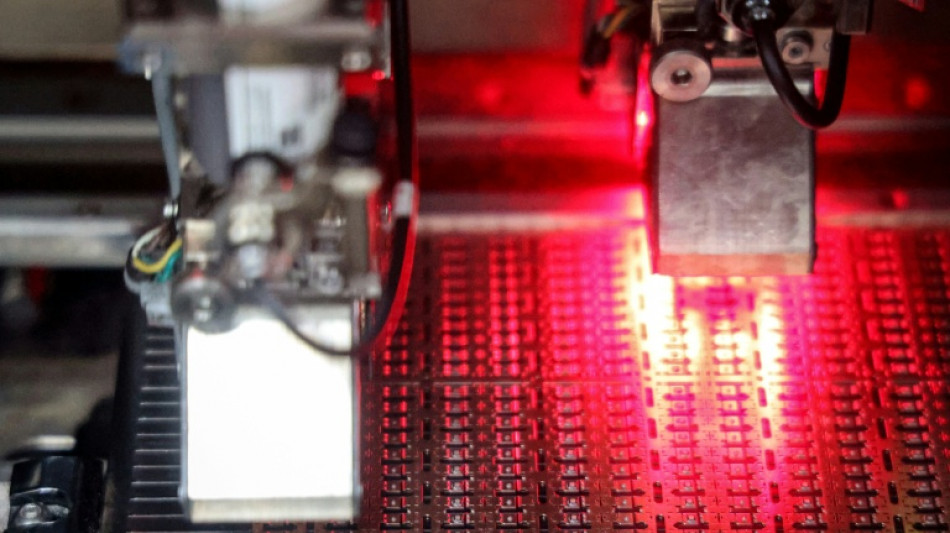
-
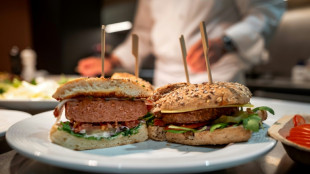 'Veggie burgers' face grilling in EU parliament
'Veggie burgers' face grilling in EU parliament
-
Trio wins physics Nobel for quantum mechanical tunnelling
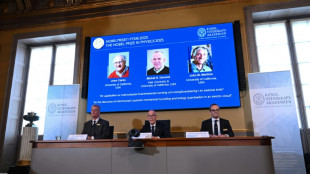
-
 Two years after Hamas attack, Israelis mourn at Nova massacre site
Two years after Hamas attack, Israelis mourn at Nova massacre site
-
German factory orders drop in new blow to Merz
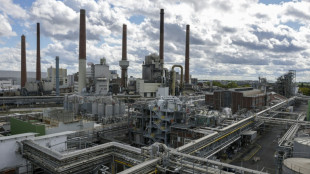
-
 Man City star Stones considered retiring after injury woes
Man City star Stones considered retiring after injury woes
-
Kane could extend Bayern stay as interest in Premier League cools

-
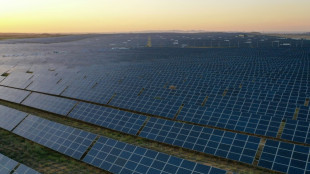 Renewables overtake coal but growth slows: reports
Renewables overtake coal but growth slows: reports
-
OpenAI's Fidji Simo says AI investment frenzy 'new normal,' not bubble

-
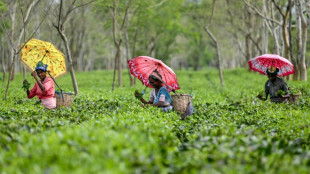 Extreme rains hit India's premier Darjeeling tea estates
Extreme rains hit India's premier Darjeeling tea estates
-
Raducanu retires from opening match in Wuhan heat with dizziness
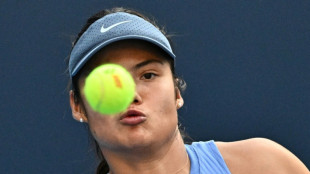
-
 UK's Starmer condemns pro-Palestinian protests on Oct 7 anniversary
UK's Starmer condemns pro-Palestinian protests on Oct 7 anniversary
-
Tokyo stocks hit new record as markets extend global rally
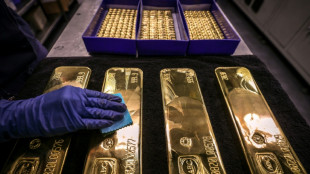
-
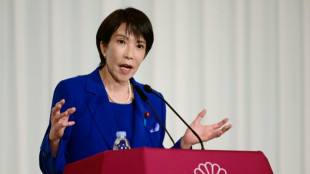 Japan's Takaichi eyes expanding coalition, reports say
Japan's Takaichi eyes expanding coalition, reports say
-
Canadian PM to visit White House to talk tariffs
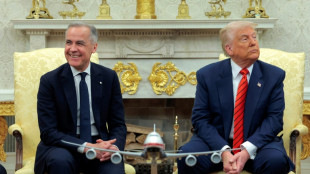
-
 Indonesia school collapse toll hits 67 as search ends
Indonesia school collapse toll hits 67 as search ends
-
Dodgers hold off Phillies, Brewers on the brink

-
 Lawrence sparks Jaguars over Chiefs in NFL thriller
Lawrence sparks Jaguars over Chiefs in NFL thriller
-
EU channels Trump with tariffs to shield steel sector
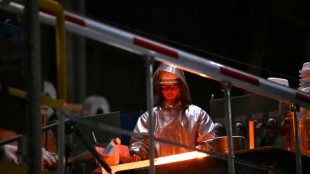
-
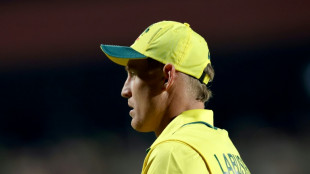 Labuschagne out as Renshaw returns to Australia squad for India ODIs
Labuschagne out as Renshaw returns to Australia squad for India ODIs
-
Open AI's Fidji Simo says AI investment frenzy 'new normal,' not bubble

-
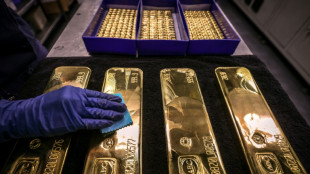 Tokyo stocks hit new record as Asian markets extend global rally
Tokyo stocks hit new record as Asian markets extend global rally
-
Computer advances and 'invisibility cloak' vie for physics Nobel
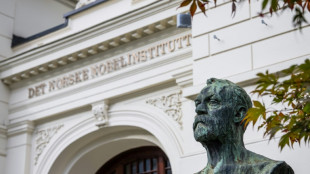
-
 Nobel literature buzz tips Swiss postmodernist, Australians for prize
Nobel literature buzz tips Swiss postmodernist, Australians for prize
-
Dodgers hold off Phillies to win MLB playoff thriller

-
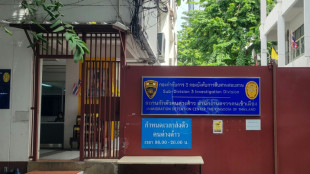 China exiles in Thailand lose hope, fearing Beijing's long reach
China exiles in Thailand lose hope, fearing Beijing's long reach
-
Israel marks October 7 anniversary as talks held to end Gaza war

-
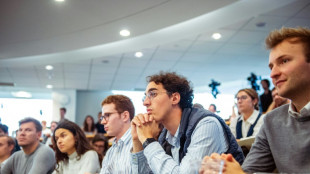 Indians lead drop in US university visas
Indians lead drop in US university visas
-
Colombia's armed groups 'expanding,' warns watchdog

-
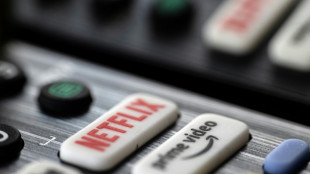 Shhhh! California bans noisy TV commercials
Shhhh! California bans noisy TV commercials
-
HotelRunner and Visa Partner Globally to Power Embedded and Autonomous Finance in Travel

-
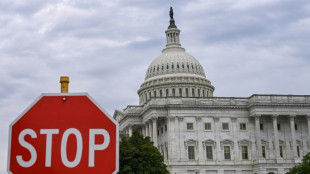 Trump 'happy' to work with Democrats on health care, if shutdown ends
Trump 'happy' to work with Democrats on health care, if shutdown ends
-
Trump says may invoke Insurrection Act to deploy more troops in US

-
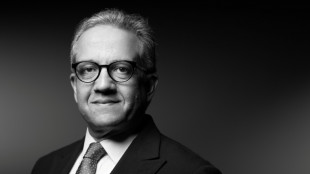 UNESCO board backs Egyptian for chief after US row
UNESCO board backs Egyptian for chief after US row
-
Greta Thunberg lands in Greece with expelled Gaza flotilla activists

-
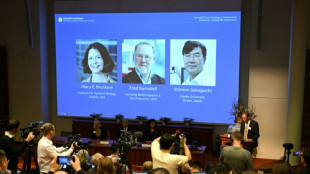 Unreachable Nobel winner hiking 'off the grid'
Unreachable Nobel winner hiking 'off the grid'
-
Retirement or marketing gimmick? Cryptic LeBron video sets Internet buzzing
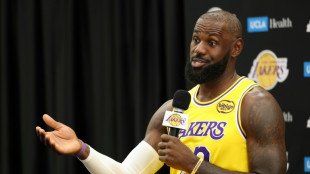
-
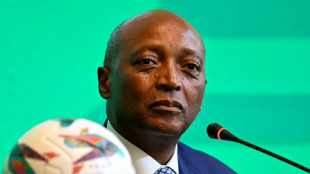 CAF 'absolutely confident' AFCON will go ahead in protest-hit Morocco
CAF 'absolutely confident' AFCON will go ahead in protest-hit Morocco
-
Paris stocks slide amid French political upheaval, Tokyo soars
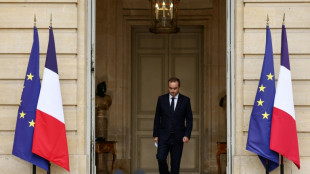
-
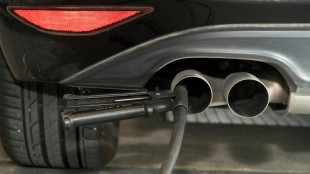 EU should scrap ban on new combustion-engine sales: Merz
EU should scrap ban on new combustion-engine sales: Merz
-
US government shutdown enters second week, no end in sight
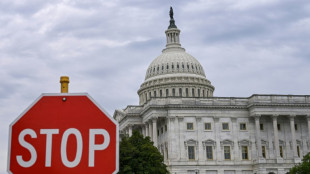
-
 World MotoGP champion Marquez to miss two races with fracture
World MotoGP champion Marquez to miss two races with fracture
-
Matthieu Blazy reaches for the stars in Chanel debut
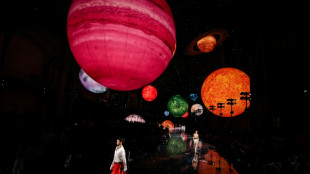
-
 Macron gives outgoing French PM final chance to salvage government
Macron gives outgoing French PM final chance to salvage government
-
Illinois sues to block National Guard deployment in Chicago

-
 Exiled Willis succeeds Dupont as Top 14 player of the season
Exiled Willis succeeds Dupont as Top 14 player of the season
-
Hamas and Israel open talks in Egypt under Trump's Gaza peace plan

-
 Mbappe undergoing treatment for 'small niggle' at France camp: Deschamps
Mbappe undergoing treatment for 'small niggle' at France camp: Deschamps
-
Common inhalers carry heavy climate cost, study finds
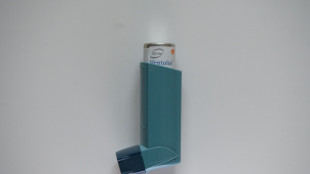
-
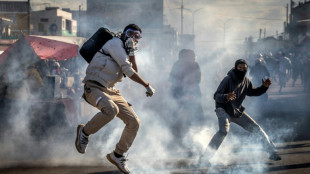 Madagascar president taps general for PM in bid to defuse protests
Madagascar president taps general for PM in bid to defuse protests
-
Greta Thunberg lands in Greece among expelled Gaza flotilla activists


China's chip challenge: the race to match US tech
China's push to develop top-end artificial intelligence microchips is gaining momentum, but analysts say it will struggle to match the technical might of US powerhouse Nvidia within the current decade.
Ramping up its chip industry is a way for Beijing to beat restrictions imposed by Washington on exports of the most advanced chips -- used to power AI systems -- to China.
The United States cites national security concerns, such as the risk of giving China a military advantage, for the block, a geopolitical bind that shows no sign of easing.
"China wants chips that policy cannot take away," said Stephen Wu, a former AI software engineer and founder of the Carthage Capital investment fund.
However, "full end-to-end parity with Nvidia's best chips, memory packaging, networking and software is not guaranteed" by 2030 or even beyond, Wu told AFP.
Announcements of computing upgrades by Chinese companies and reports of plans to dramatically increase output of advanced semiconductors have driven up chip-related shares in the country.
But to catch up with Nvidia, China needs to make fast progress on high-bandwidth memory and packaging -- "the hardest and most complex parts of the chip", Wu said.
Other challenges include building the right software to harness the chips' power, and upgrading manufacturing tools.
"These chips are extremely advanced and tiny, so imagine carving a stone sculpture with a hammer instead of a chisel," Wu said.
- 'Only way' to succeed -
"The industry consensus is China at least needs five to ten years to catch up," said George Chen of The Asia Group, a view reflected by Dilin Wu, research strategist at Pepperstone.
"The future is bright, but not yet," she told AFP.
"It's maybe a 2030 story", as "significant gaps remain in terms of performance, and also in terms of energy efficiency and ecosystem maturity".
Public demand for AI services is booming in China, and while government support for new chips is "substantial", the investment required is "immense", she added.
Shares in Alibaba, the e-commerce titan ploughing billions of dollars into AI tech, have more than doubled since January.
And Chinese chip industry leader Huawei will reportedly double output of its top Ascend 910C chip in the next year.
The hype has also sharply driven up stocks in the smaller chipmaker Cambricon, sometimes dubbed "China's Nvidia".
"I think this rally can be sustained", partly because it is driven by Chinese government policy, Pepperstone's Wu said.
Even Xiaomi, whose 2014 venture into chip design was a self-confessed flop, is turning back to semiconductors.
"Chips are the only way for Xiaomi to succeed," the company's CEO Lei Jun said in Beijing last month, referring to the production of high-end smartphone chips.
- 'Best in China' -
China, the world's biggest consumer of semiconductors, is a huge market for California-based Nvidia.
Nvidia chips are still "the best... to train large language models", the systems behind generative AI, said Chen Cheng, general manager for AI translation software at tech firm iFLYTEK.
Faced with US restrictions, "we overcame that difficulty" by shifting to Chinese-made tech, she said in a group interview.
"Now our model is trained on Huawei chips" -- currently the best in China, Cheng said.
Meanwhile Nvidia, the world's largest company by market capitalisation, is under pressure from both sides.
The Financial Times reported last month that Beijing had barred major Chinese firms from buying a state-of-the-art Nvidia processor made especially for the country.
And the company must now pay the US government 15 percent of revenue from certain AI chip sales in China.
Nvidia boss Jensen Huang has warned that restrictions on exporting his most cutting-edge semiconductors to China will only fuel the country's rise.
"They're nanoseconds behind us," the leather jacket-clad Huang said on a tech business podcast.
"So we've got to go compete."
P.Tamimi--SF-PST
